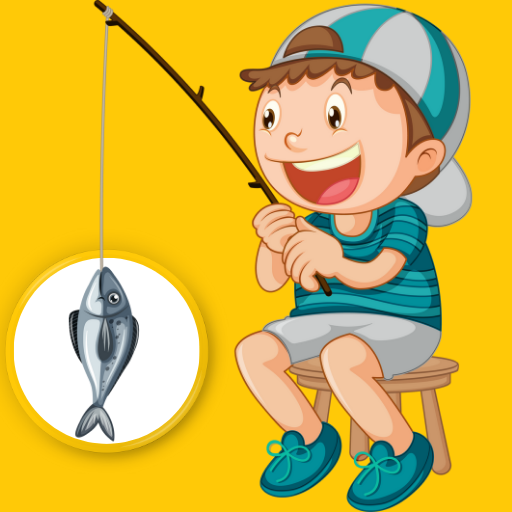Fishing is often seen as a relaxing pastime or a leisurely escape from the hustle of modern life. But when we peel back the surface, we uncover a fiercely competitive, physically demanding, and skill-intensive pursuit. So, is fishing a sport? Absolutely—and here’s why.
Defining Sport: Does Fishing Fit the Criteria?
A sport is typically defined as a physical activity involving skill and competition, governed by rules, and often recognized by organized bodies. Fishing—specifically in its competitive and recreational forms—ticks all these boxes:
- Physical exertion: Handling rods, casting lines, battling strong fish, navigating waters.
- Skill requirement: Reading water, choosing the right bait, mastering techniques.
- Competitive framework: From local tournaments to international championships.
- Rules and governance: Regulated by official associations and bodies like B.A.S.S. (Bass Anglers Sportsman Society) and IGFA (International Game Fish Association).
Competitive Fishing: The Proof That Fishing Is a Legitimate Sport
Competitive angling is a structured and globally recognized format of fishing. Events like the Bassmaster Classic, the FLW Tour, and international fly-fishing competitions showcase anglers competing under strict rules for prestige and substantial prizes.
- Timed competitions: Anglers must catch the most or largest fish within a set time.
- Judged formats: Points are awarded based on weight, species, and strategy.
- Professional leagues: Elite Series, Major League Fishing (MLF), and others.
These tournaments feature intense preparation, custom gear, strict regulations, and elite athletes—paralleling any other recognized sport.
The Physical Demands of Fishing: More Than Just Sitting and Waiting
Contrary to misconceptions, fishing involves considerable physical effort:
- Endurance: Standing or navigating a boat for hours in varying weather.
- Strength: Reeling in powerful fish like marlin, tuna, or pike can take serious muscle.
- Coordination: Precision casting, handling tackle, adjusting drag systems.
- Agility: Reacting quickly to sudden movements of fish, changing water conditions.
Deep-sea fishing, fly-fishing in rough terrain, and ice fishing in frigid temperatures all demand athleticism and resilience, often underestimated by outsiders.
Strategic Thinking: Mental Acuity in Sport Fishing
Success in fishing doesn’t come from luck. It requires mental sharpness and tactical intelligence.
- Studying habitats and species behavior.
- Adapting to environmental conditions like wind, tides, and water clarity.
- Mastering gear mechanics—line weights, lure choices, sonar equipment.
- Developing long-term strategies and quick in-the-moment decision-making.
Anglers often compare this level of thinking to chess or golf, where strategy is king.
Fishing Requires Mastery Over Technique and Equipment
Top-tier anglers spend years honing their techniques and becoming fluent in the complex tools of their trade.
- Casting styles: Overhead, sidearm, roll casting—all require precision.
- Lure presentation: The way a bait moves can determine a catch.
- Equipment customization: Rod action, reel speed, line test, hook types.
- Technology integration: Using sonar, GPS mapping, and fish-finding electronics.
Proficiency with equipment is essential—just like in tennis, football, or archery.
Organized Associations and Rules: The Infrastructure of a True Sport
Fishing is backed by a well-structured ecosystem of leagues, organizations, and federations.
- Regulated formats: Catch-and-release rules, size limits, ethical handling.
- Official rankings and titles: Regional, national, and world champion status.
- Sponsorships and endorsements: From gear companies to outdoor brands.
- Media coverage: Televised tournaments, live streams, social media buzz.
These formalities cement fishing’s identity as a recognized and organized sport worldwide.
Global Recognition: Fishing in the Eyes of the Sporting World
Fishing is not just an American pastime—it’s a global competitive phenomenon.
- Fly Fishing World Championship
- Carp Fishing Tournaments in Europe
- Saltwater Game Fishing in Australia and Southeast Asia
Nations sponsor fishing teams. Global federations oversee standards. Prize pools reach hundreds of thousands. And fans follow fishing stars like Kevin VanDam or Mike Iaconelli with the same devotion as mainstream athletes.
Olympic Debate: Could Fishing Join the Games?
There’s ongoing discussion about introducing fishing—especially competitive sport fishing or casting disciplines—into the Olympic Games. The precision, skill, and global nature of angling are aligned with Olympic values.
While not yet part of the Olympic roster, casting sports are governed by the International Casting Sport Federation, which conducts world championships with techniques similar to Olympic archery and shooting.
Why Public Perception Has Lagged Behind Reality
The belief that fishing is merely a hobby is outdated. The misconception stems from its accessibility—anyone can do it. But that doesn’t disqualify it from sport status.
- Golf is accessible, but undeniably a sport.
- Archery is precision-based, like fishing.
- Esports are mental contests—fishing combines both mental and physical.
As media coverage and prize money increase, fishing is rapidly shedding its “just a hobby” label.
Fishing’s Physical and Competitive Nature Validates Its Sport Status
To call fishing a sport is not a stretch—it’s a precise, strategic, physically demanding competition. It possesses the fundamental elements of any sport:
- Physical effort
- Skill development
- Structured competition
- Professional recognition
From lakeside bank fishing tournaments to high-seas battles with marlin, fishing embodies everything a modern sport should be—intensity, skill, discipline, and passion.


Leave a Reply